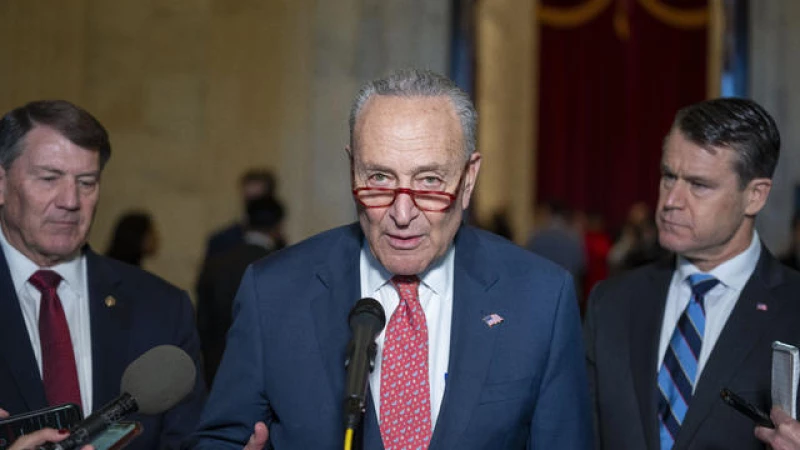Senate Expected to Vote on Stopgap Funding Bill
Washington — The Senate is expected to vote on a stopgap funding bill on Wednesday that would punt a spending fight until early next year.
The House passed the bill, known as a continuing resolution, Tuesday night, sending it to the Senate ahead of a Friday deadline. Without a funding extension, the government is set to shutdown Saturday.
House Speaker Mike Johnson unveiled the measure less than a week before funding from a short-term bill passed in September was set to expire.
But dissent from within his own party over its lack of spending cuts or funding for border security required Johnson to rely on Democratic votes to get it over the finish line.
The two-step bill extends appropriations dealing with veterans programs, transportation, housing, agriculture and energy until Jan. 19. Funding for eight other appropriations bills, including defense, would be extended until Feb. 2.
House Minority Leader Hakeem Jeffries originally called the two-step plan a nonstarter, but later said Democrats would support it given its exclusion of spending cuts and "extreme right-wing policy riders." All but two Democrats voted to pass the measure, while dozens of Republicans opposed it.
Why is the government facing another shutdown?
Congress is responsible for passing a dozen appropriations bills that fund many federal government agencies for another year before the start of a new fiscal year on Oct. 1. The funding bills are often grouped together into a large piece of legislation, referred to as an "omnibus" bill.
The House has passed seven bills, while the Senate has passed three that were grouped together in a "minibus." None have been passed by both chambers.
In September, Congress reached a last-minute deal to fund the government through Nov. 17 just hours before it was set to shutdown.
Hard-right members upset by the short-term extension that did not include spending cuts and who wanted the House to pass the appropriations bills individually moved to oust House Speaker Kevin McCarthy as their leader.
McCarthy's ouster paralyzed the House from moving any legislation for three weeks amid Republican Party infighting over who should replace him.
In the Senate, Majority Leader Chuck Schumer said he hoped there would be a strong bipartisan vote for the House bill.
"Neither [Senate Minority Leader Mitch] McConnell nor I want a shutdown," Schumer said Tuesday.
President Biden is expected to sign the bill if it passes the Senate.
Johnson was faced with a limited amount of time to gather support from his members in order to prevent a government shutdown. Ultimately, he found himself in a similar situation as McCarthy, requiring Democratic votes to pass a bill that did not meet the demands of conservative members.







